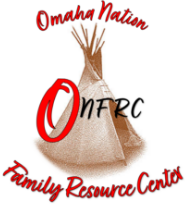The Umoⁿhoⁿ (Omaha) Youth Basic Center Program (UYBCP) initiative is funded through a grant from the Administration for Children and Youth. Through this grant, the Family Resource Center seeks to invest in our homeless and runaway youth and those at risk of homelessness. Addressing the needs of homeless and runaway at at-risk youth presents two unique and important challenges.
First, how to locate, identify, interact with, and support youth and engage with the community. Many of the outreach strategies that have been perfected in urban centers have limited effectiveness in rural communities. To address this, UYBCP staff will be creative in their approach to youth outreach, relying heavily on canvassing of our tribal communities, holding community events, and in peer networking to establish useful avenues-to-service.
Second, the role of tribal sovereignty and extent of cultural experience and strengths in designing youth housing initiatives. Currently, the vast majority of un-housed youth that receive aid within the Omaha Reservation are forced to have their housing needs met through off-reservation, non-tribal resources when accessible and available. Although this is not ideal for any group, in particular, for a tribal community with an ethos for cultural and family unity, it is paramount. This challenge stands at the heart of the need for this Basic Center Program: to keep our tribal youth connected to their culture by keeping them within the community and near their relations.
Serving tribal youth under the age of 18, the UYBCP will focus on the ACYF’s four outcome areas:
- Social and Emotional Well-Being: Youth will be connected to culturally relevant trauma-informed, system of care providers to assist and promote positive physical health, substance abuse treatment, mental health, personal safety (e.g., identify potential trafficking situations), and reduce sexual risk behaviors they may face.
- Permanent Connections: Youth will experience positive ongoing attachments to families, tribal communities, schools, and other social and cultural networks.
- Education or Employment: Youth will connect to school or vocational training programs, improve interviewing and job attainment skills, and obtain and maintain employment.
- Safe and Stable Housing: Youth will transition to safe and stable housing that appropriately matches their level of need after leaving a UYBCP to include: moving in with positive family relations, when appropriate, or other permanent supportive housing, residential treatment center, or substance abuse treatment facility.
These outcomes will be accomplished via supportive counseling activities tailored to each individual youth participant’s needs. These needs will be assessed at regular intervals using tools such as IPSI and CLSA assessments, and the RHY-HMIS and PPR data collection instruments.
Program Contact Information
Moriah Parker
Email: Moriah.parker@theomahatribe.com
(402) 846-5280 EXT. 2303

